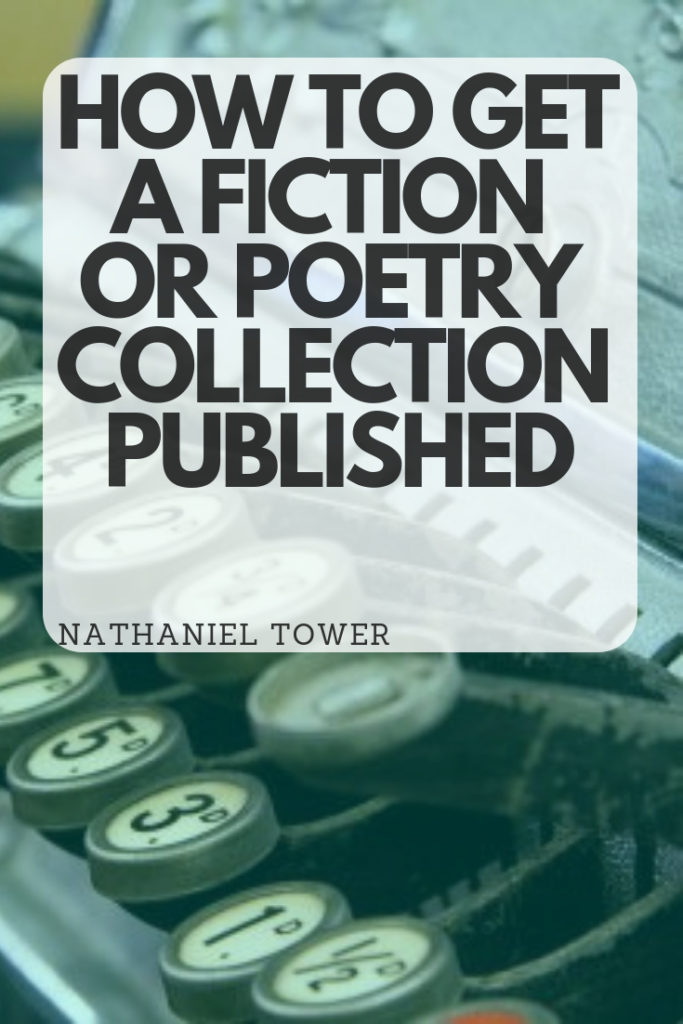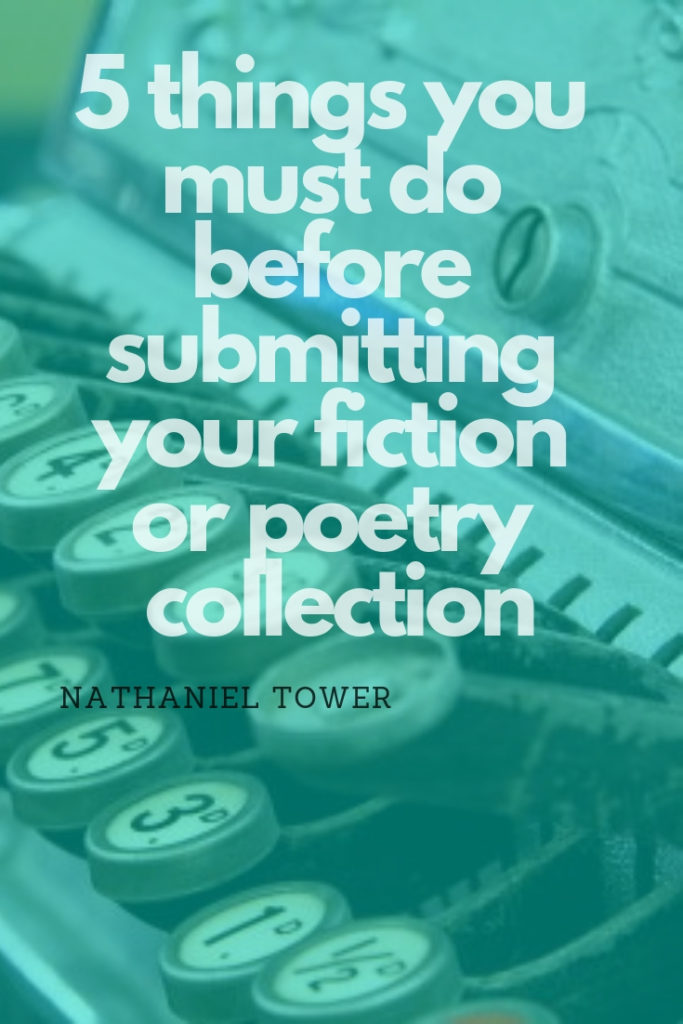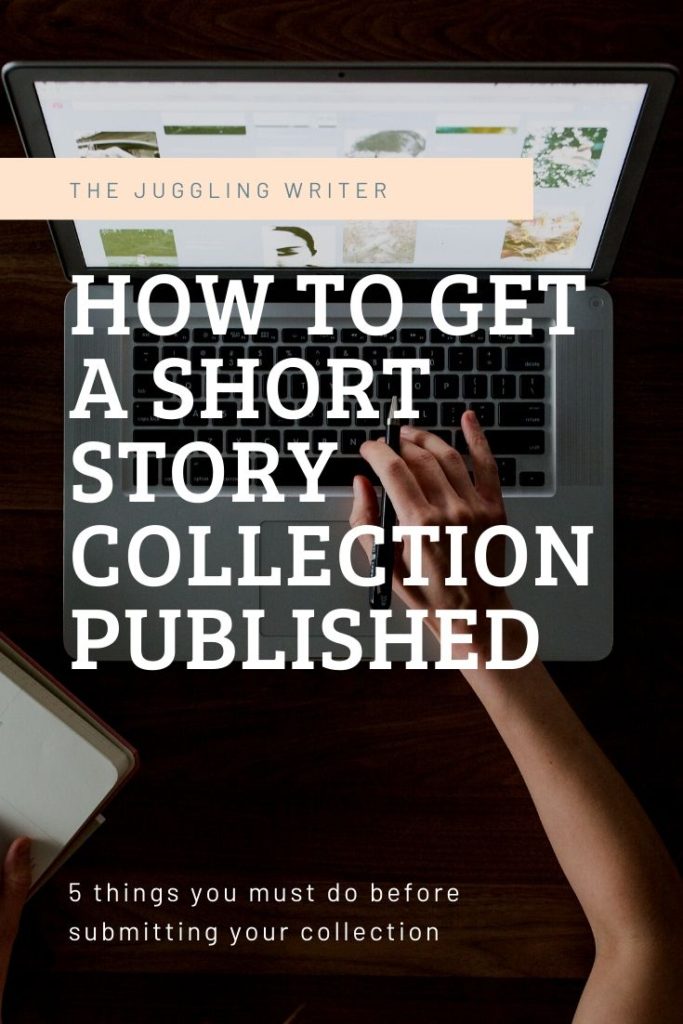Last Updated on March 10, 2020 by Nathaniel Tower
Earning a living from short fiction or poetry is about as easy as earning a living from recycling aluminum cans and plastic bottles. Actually, it’s probably harder. In some states, a plastic bottle will get you five or ten cents, but your thoughts are only worth a penny. Your short stories and poetry are often worth even less.
Getting a fiction or poetry collection accepted by a publisher is no easy task. On the bright side, there are more presses than ever willing to publish short stories and poetry. However, there are also many more writers than ever before. Furthermore, many of these small presses are unable to offer any advances or even do much to promote your work.
Before submitting a fiction or poetry collection, you need to be sure you’ve done everything you can to create a marketable product. Here are the five essential steps to take before submitting.
1. Write
Before you can submit any type of fiction or poetry collection, you need to write it. While this might seem obvious to some, others are convinced they only need a few stories or even just an idea for a collection. In today’s world, no publisher wants an idea for a collection. If you don’t have a finished product, then you don’t have anything at all. This doesn’t mean that you can’t change the stories or poems in your collection before final publication, but you definitely need a complete manuscript. When you do assemble that manuscript, you need to do it with purpose. Generally, a themed collection will work better than a “best of” type of collection. Sure, people will always buy Journey’s Greatest Hits, but there’s a long road to travel before anyone cares about your “best” stories.
2. Revise
Any manuscript you send out, regardless of genre, should be the most perfect version you can possibly create. While you are certainly going to go through several rounds of edits between acceptance and publication, you need to do everything you can to get your manuscript publishable prior to showing it to any editors. Publishers are overwhelmed with submissions, and they need every excuse they can to weed some out. If your collection doesn’t feel ready, then no publisher is going to take a chance.
3. Research
Sending out collections without thoroughly researching the market is about the same as blindfolded archery. You aren’t going to come close to a target if you don’t know what you’re trying to hit. Finding the right markets to send your collection will save you and the publishers a lot of time. You need to research everything you can about a market, including preferred length, genres, and subjects. Some publishers are very particular about the percentage of the collection that should be previously published. Other markets have very strict formatting guidelines. You’ll also want to learn everything you can about royalties, advances, promotion, and other contract terms before bothering to send your manuscript. If a publisher is offering something you can’t live with, then there’s no reason to submit. Unless you are sitting on the next best-seller, you aren’t going to have any bargaining chips.
4. Read
Just because you know a market’s guidelines doesn’t mean you’re ready to submit to them. It’s important to read at least one collection they’ve published before you send your work to them. You need to know the style of work they publish. Of course, that doesn’t mean you should try to copy a recent book. In fact, if your topic or style is too similar, then you will probably be rejected rather quickly. Still, reading the work they’ve put out in the past is the best way to get a feel for what they want to publish.
5. Sell
No one will publish your short story or poetry collection if you can’t pitch it the right way. If you approach submissions with the attitude that your words will sell themselves, then you’ll never make it out of the slush pile. You need to put together a compelling pitch. Try to figure out why anyone would want to read a bunch of your stories. You also need to do everything you can to make yourself stand out. If a particular market publishes anthologies or journals, then getting a single story or poem published by them might be your best chance for a full collection. The publisher of my first short story collection had published two of my short stories in their online journal prior to accepting my collection. My forthcoming collection follows the same trend.
While it may seem like everyone has a book to write these days, there aren’t enough publishers or readers for all of them. If you want your fiction or poetry collection accepted by a publisher with the resources to pay you and promote your work, then you need to do a lot more than just throw a few stories together. Short fiction and poetry is a very tough market. Unlike your plastic bottle collection, there’s never a guaranteed sale.




Good advice. Thanks.